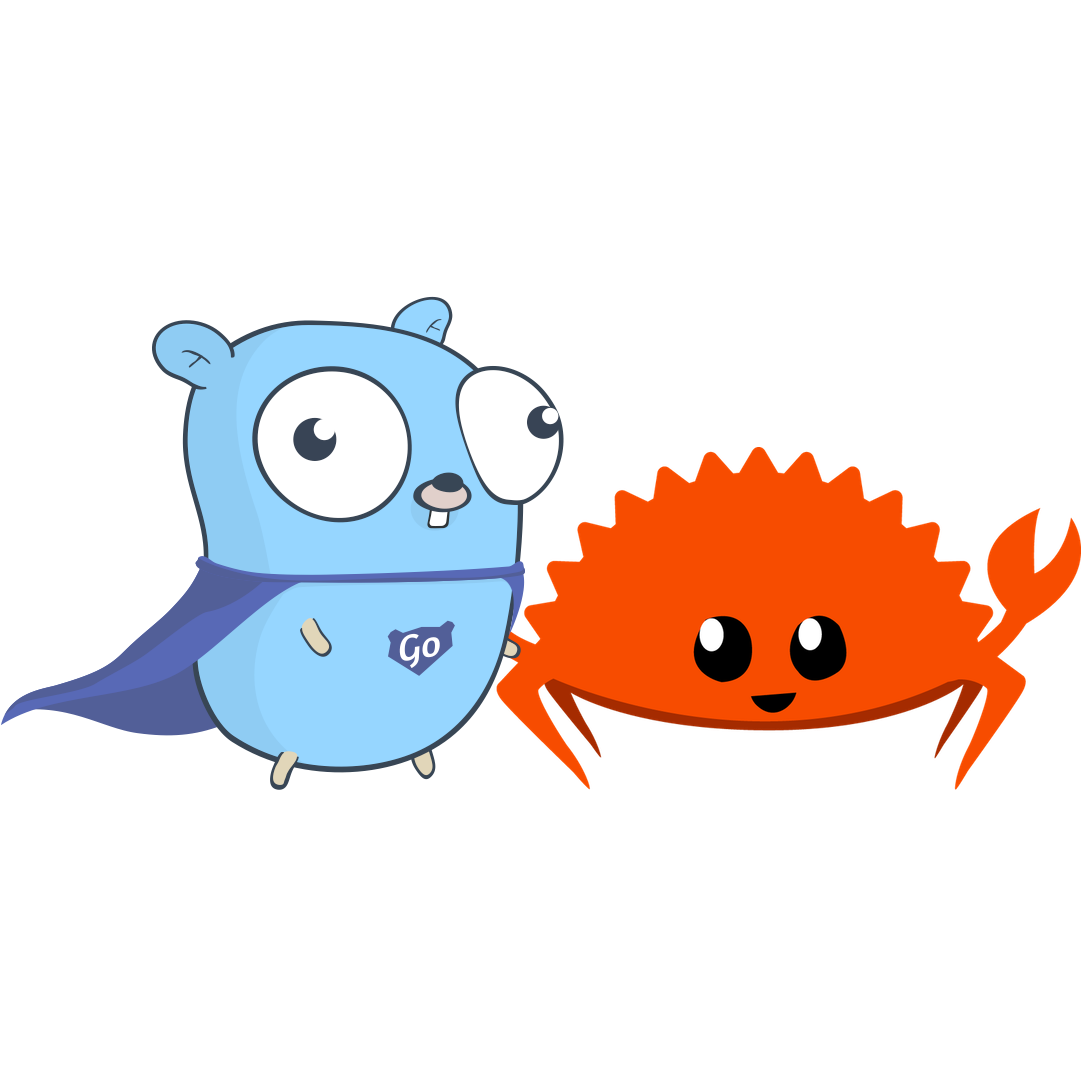I finally found the one serene, omnicompetent guru who writes perfect code! Here are her ten secret mantras of Go excellence.
All tagged golang
Rust vs Go: ¿cuál elegir?
Un resumen de Rust y Go que destaca sus ventajas, señala lo que comparten y aclara sus diferencias clave. ¿Cuál deberías elegir?
Rust vs Go
Which is a better choice, Rust or Go? Which language should you choose for your next project, and why? How do the two compare in areas like performance, simplicity, safety, features, scale, and concurrency?
Racing with disaster: data races in Go
Writing concurrent programs is easy, but understanding why they don’t work is hard. In this post, we’ll talk about data races, why they’re a problem, and how they arise in Go programs.
What are the best Go books in 2026?
What are the best Go books this year? Read my (relatively) unbiased recommendations for the Go books you should absolutely buy and read right now, whether you’re a beginner or expert Gopher.
When doomed stubs attack: blockchain voting and proof of work
If cryptocurrencies aren’t managed by any central authority, what’s to stop anyone just printing themselves some money and spending it on pizza? The answer, excitingly, is “math”.
Red, green, refactor: writing perfect Go, with TDD
Make it work, then make it right: the “red, green, refactor” technique helps us craft Go code that’s correct and beautiful. It’s easy! Shall we play a game?
The best Go training providers in 2026
Go is a unique language, and not all Go trainers are equal. Here's a breakdown of the community's favorite Go training providers and how to choose between them.
Starving, sleeping, and yielding: understanding Go's scheduler
Writing concurrent programs is easy, but understanding why they don’t work is much harder. In our continuing tutorial, we’ll learn about when and why goroutines starve, sleep, or yield.
Go go goroutines: understanding Go’s concurrency model
Our brains can only do one thing at once, but Go programs can manage millions of independently-executing concurrent tasks. Let’s find out how that works, and learn why concurrency is central to Go.
The joy of (type) sets: interfaces and generics in Go
Generics introduces a whole new kind of interface to Go: one based not on methods, but on type sets. Let’s explore the possibilities.
Bobcoin, blockchains, and cryptocurrency
How do cryptocurrencies actually work, though? Join Alice and Bob as they embark on designing a new digital ledger for secure “Bobcoin” transactions.
Slow, flaky, and failing: tuning up your Go test suite
Thou shalt not suffer a flaky test to live, because it’s annoying, counterproductive, and dangerous: one day it might fail for real, and you won’t notice. Here’s what to do.
Undertesting and overtesting: finding the sweet spot for Go tests
Tests are great, provided they actually test something. But are your tests too optimistic (assuming the code already works), or too persnickety (testing the irrelevant)?
Rust and Go vs everything else
Alex Pliutau and I discuss what Go programmers should know about Rust, and why the two languages make perfect partners.
Constraints in Go: tightening up your type parameters
Freedom is nothing without constraints, and Go’s generics gives us a powerful way to build polymorphic types and functions constrained by type sets. Let’s geek out.
Generic types in Go: collections and functions
What kind of idiot would carry a package for someone when they've absolutely no idea what's inside it? Well, generic types in Go are exactly like that, only in a good way.
Testing legacy Go code: tiptoeing through the minefield
How do you rescue a legacy codebase that has no tests? Let's look at some techniques for clawing your way back to maintainability, one test at a time.
Programming is fun: a Cup o’ Go podcast chat with me
I was a guest on the Cup o’ Go podcast recently, talking with Shay Nehmad and Jonathan Hall about writing and teaching Go. Here’s a transcript of our chat.
Encrypting with AES: a simple cipher tool in Go
AES is an amazing, state-of-the-art encryption system, and it’s built right in to Go as part of the standard library. It’s also incredibly easy to use. Let’s see how!












